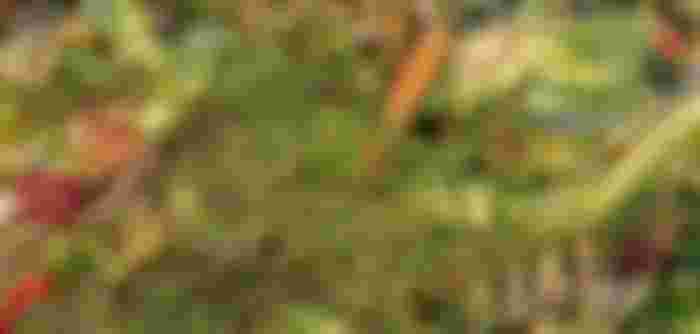Composting for Beginners
What is Composting?
Farmers and gardeners are usually well aware of the value of composting and what benefits do the composting process gives to the soil. Now, composting is no longer imprisoned only in agriculture areas, but it is practised in our cities too. Composting is basically a recycling process, recycling the waste of our kitchens, which helps our farms or our gardens to enhance the richness of the soil and retain the moisture in it. By composting process, the land creates such habitats which are beneficial for soil organisms, slowly release nutrients & minerals for plants and last but not the least preserves the plants from soil-borne pathogens.
Compostable Materials
Composting is such a gift to our world that such waste which we usually through around us, can give unprecedented value to our soil. Waste material such as, tea leaves, Straw or hay, wood chips, Shrub pruning, shredded paper, wood ash, table scraps, seaweed and kelp, pine needles, leaves, newspaper, garden and lawn weeds, grass clipping, flowers, eggshells, green comfrey leaves, coffee grounds, chicken manure, corn cobs or stalks, cardboard, dryer lint, garden plants, sawdust pellets and wood pellets likely all that kitchen waste which is of no use according to us, can be used in composting process.
Composting Bin
Composting bins are usually created to easily make compost staying on your property, unless or until it can be used in gardens or farms. These bins are designed in such a way that they could accelerate the process of decomposition of biological matter through aeration and water retention. With the best possible blend of air and dampness, perfect conditions are delivered for the action of aerobic organisms liable for the high temperatures that change the natural materials into compost. Eventually, this process can take place naturally, but using a bin can speed up the process of decomposition, which has a crucial role in compost production.
Compost Creation
Gather around the green (nitrogen-rich) and brown (carbon) parts of materials equally because to have ideal conditions for composting it is crucial. All living beings depend on air and oxygen; likewise, the microorganisms need air and water to survive as they the essential part of decomposition. So keeping that in mind, proper arrangements should be made for air and water supply during the composting process. The preparation time of compost can vary from 3 months to even a year.
Redworms in Indoor Composting
Nothing is useless in this entire world, not even a single insect. Redworms can recycle waste and plant materials into a useful conditioner for soil. So, redworms are ideal for indoor composting, as they can make your kitchen waste disappear and in result, your plants will flourish.
How to use compost?
Having knowledge of wood chips, fertiliser, peat greenery, or topsoil in alteration of a garden, anyone can realise how to use compost. Compost can be used in blossom and vegetable beds; mixing it with gardening soil to rejuvenate indoor plants or spread it on your yard as compost.

